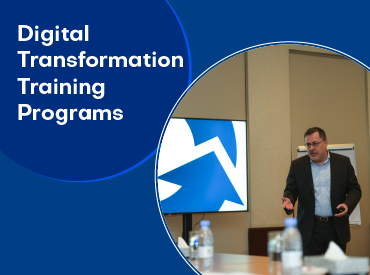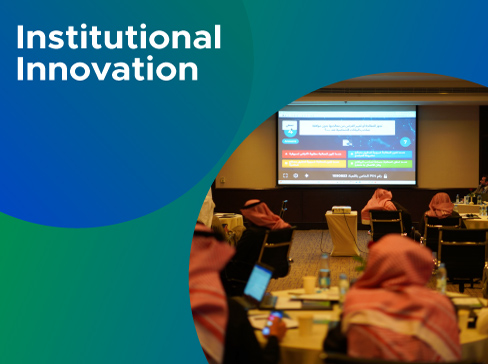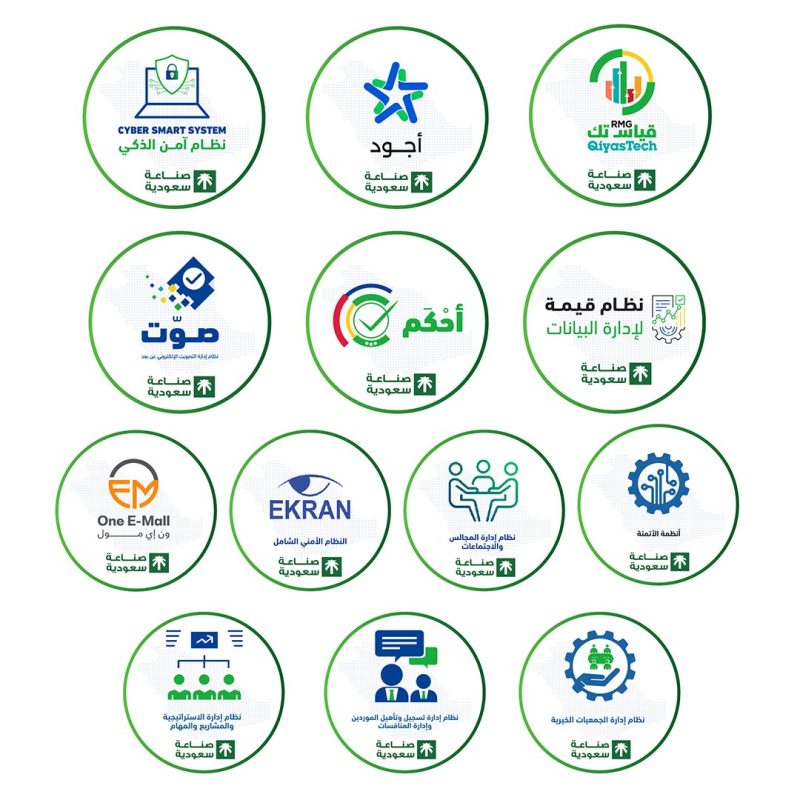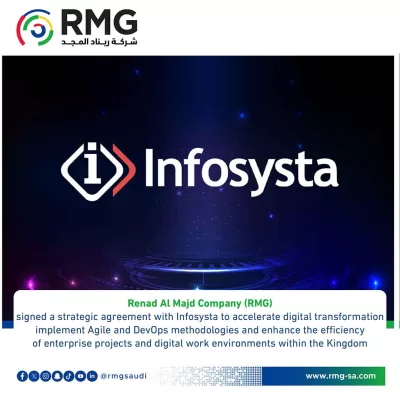Blog Body

In the age of digital transformation, data has become one of the most important strategic assets that organizations rely on in making their operational and planning decisions. The Nadi Index is an important tool developed by Saudi Arabia to measure the maturity of data management within government organizations, to enhance efficiency and achieve maximum utilization of data.
In this context, Renad Al Majd Information Technology Company (RMG) plays a vital role in supporting institutions and government bodies to reach the highest levels of digital maturity and achieve compliance with global data management standards. By providing specialized consulting, technical training, and developing smart solutions, Renad Al Majd helps various entities adopt best data management practices and ensure the achievement of the greatest possible benefit from digital assets.
The Concept of Data Management Maturity
Data management maturity reflects the extent of organizations’ ability to apply modern data management standards and is a crucial element in assessing digital readiness and achieving sustainable digital transformation. Successful organizations rely on effective data management to ensure improved operational efficiency, achieve regulatory compliance, and ensure cybersecurity.
Data management maturity can be defined as the extent of development of data collection, storage, analysis, and management processes in a way that achieves added value for the organization. Digital maturity is considered an essential element in improving the quality of strategic decisions and enhancing the capabilities of organizations in providing better services and achieving their goals efficiently.
Why is Data Management Maturity Important?
- Improving Data Quality: By ensuring the accuracy, consistency, and continuous updating of data.
- Enhancing Decision-Making: Where mature data provides reliable information that can be relied upon in strategic decisions.
- Achieving Regulatory Compliance: Ensures the application of policies and procedures related to data management, such as data governance and privacy protection.
- Increasing Operational Efficiency: Reducing waste in operations, improving data flow between systems, and providing a smoother user experience.
- Supporting Innovation and Digital Transformation: Enabling organizations to benefit from artificial intelligence and big data analytics.
Maturity Levels in the Nadi Index
The Nadi Index relies on six levels of maturity, ranging from the absence of capabilities to leadership, which helps organizations assess their current position and determine appropriate development strategies.
- Absence of Capabilities:
- Lack of any formal data management practices.
- Absence of clear policies and procedures.
- Reliance on unorganized operations in dealing with data.
- Definition:
- Developing basic data management policies without a unified framework.
- Availability of individual efforts within different departments.
- Absence of a clear mechanism for measuring data performance.
- Application:
- Implementation of operations initially but without clear standards.
- Use of simple technical tools without comprehensive integration.
- Weak link between data strategy and institutional objectives.
- Activation:
- Integrating data management practices within the institutional structure.
- Raising awareness of the importance of data among employees.
- Applying specific policies to organize data and ensure its quality.
- Empowerment:
- Monitoring performance and achieving continuous improvements.
- Using data analysis techniques to support decision-making.
- Implementing advanced solutions in data management such as artificial intelligence and machine learning.
- Leadership:
- Achieving innovation in data management.
- Adopting the latest technologies such as big data analytics and smart governance.
- Building a digital business model that relies on data in making strategic decisions.
Criteria for Measuring Data Management Maturity
Maturity measurement criteria depend on a set of basic axes that help organizations develop data management strategies, including:
- Data Governance:
- Developing clear policies and procedures for organizing data.
- Defining responsibilities and user rights within the organization.
- Data Quality:
- Ensuring the accuracy, consistency, and comprehensiveness of data.
- Applying data cleaning techniques and analyzing their quality regularly.
- Content Management:
- Organizing data according to unified structures to facilitate access to it.
- Improving methods of classifying and storing data to enhance work efficiency.
- Data Integration:
- Linking different systems within the organization to ensure smooth data flow.
- Improving data transfer processes between different departments.
- Master Data Management:
- Unifying basic data sources within the organization.
- Applying solutions that ensure data consistency across different systems.
- Achieving Value from Data:
- Using advanced analytics to extract insights that help in decision-making.
- Developing dynamic dashboards that provide a comprehensive view of institutional performance.
Renad Al Majd’s Role in Supporting Organizations to Achieve the Highest Results of the Nadi Index
Renad Al Majd Information Technology Company (RMG) offers integrated solutions that help organizations achieve the best results in the Nadi Index and reach advanced maturity levels. The company’s role includes several main axes:
- Providing Specialized Consultations
Renad Al Majd helps organizations develop integrated data management strategies, through:
- Analyzing the current status of data maturity.
- Developing development plans based on the criteria of the Nadi Index.
- Improving data operations to enhance compliance and quality.
- Developing Technical Solutions
The company offers the latest technical solutions in the areas of:
- Big data analytics to improve the quality of decision-making.
- Digital governance platforms to ensure compliance with standards.
- Cybersecurity solutions to protect data from digital threats.
- Implementing Training Programs and Workshops
Renad Al Majd offers specialized training programs that include:
- Raising awareness of the concepts of data management and governance.
- Training employees on best technical practices.
- Qualifying institutions to pass the Nadi Index assessments.
- Improving Digital Integration Operations
The company supports institutions in implementing data integration projects, through:
- Developing application programming interfaces (APIs) to improve data flow.
- Linking different digital systems to achieve seamless integration between platforms.
Renad Al Majd: A Catalyst for Sustainable Digital Transformation
The Nadi Index is an essential tool in measuring the maturity of data management, as it helps organizations determine their level of progress in data management and develop their digital strategies. Renad Al Majd Information Technology Company plays a pivotal role in supporting government and private bodies to reach the highest levels of maturity, by providing specialized consultations, technical solutions, training programs, and data integration services.
Through cooperation with Renad Al Majd, institutions can achieve digital excellence and enhance data performance in accordance with the best global practices, which contributes to achieving the Saudi Vision 2030 towards sustainable digital transformation.
For more information about Renad Al Majd’s services, you can contact our specialized team through the following form:
























